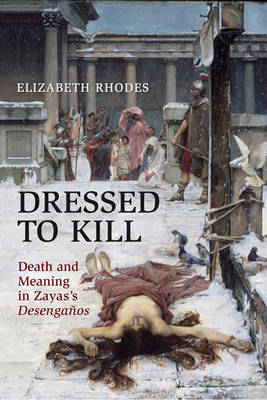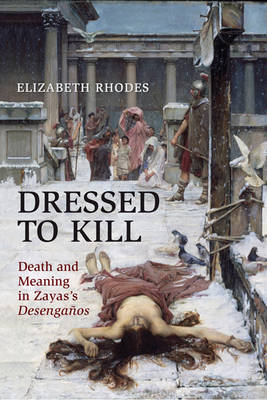
- Retrait gratuit dans votre magasin Club
- 7.000.000 titres dans notre catalogue
- Payer en toute sécurité
- Toujours un magasin près de chez vous
- Retrait gratuit dans votre magasin Club
- 7.000.000 titres dans notre catalogue
- Payer en toute sécurité
- Toujours un magasin près de chez vous
Description
The noble wives in María de Zayas's Desengaños suffer terrible fates: one is beheaded, another poisoned, one is cemented into a chimney, while yet another is locked into a tiny wall closet where she dies. The hallmark of Zayas's aesthetics, these characters are the central reason why her fiction has increased in popularity through the ages. Yet their stories pose an apparent contradiction between the author's pro-female rhetoric and her gusto for killing model women, then beautifying their mutilated cadavers.
Dressed to Kill reconciles Zayas's Desengaños with the age in which it was written, contextualizing the book in baroque poetics, the Spanish honour code, and fifteenth-century martyr saints' lives. Elizabeth Rhodes elegantly uncovers Zayas's intention to reform the Spanish nobility by displaying noble misbehaviour and its deadly consequences. Her book concludes by detailing the Desengaños' intriguing influence on the aesthetic base of Gothic literature by revealing that its authors were avid readers of Zayas.
Spécifications
Parties prenantes
- Auteur(s) :
- Editeur:
Contenu
- Nombre de pages :
- 240
- Langue:
- Anglais
- Collection :
Caractéristiques
- EAN:
- 9781442643505
- Date de parution :
- 10-12-11
- Format:
- Livre relié
- Format numérique:
- Genaaid
- Dimensions :
- 152 mm x 229 mm
- Poids :
- 476 g







